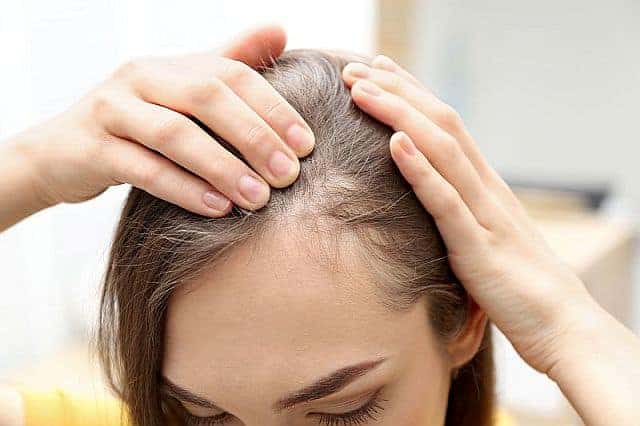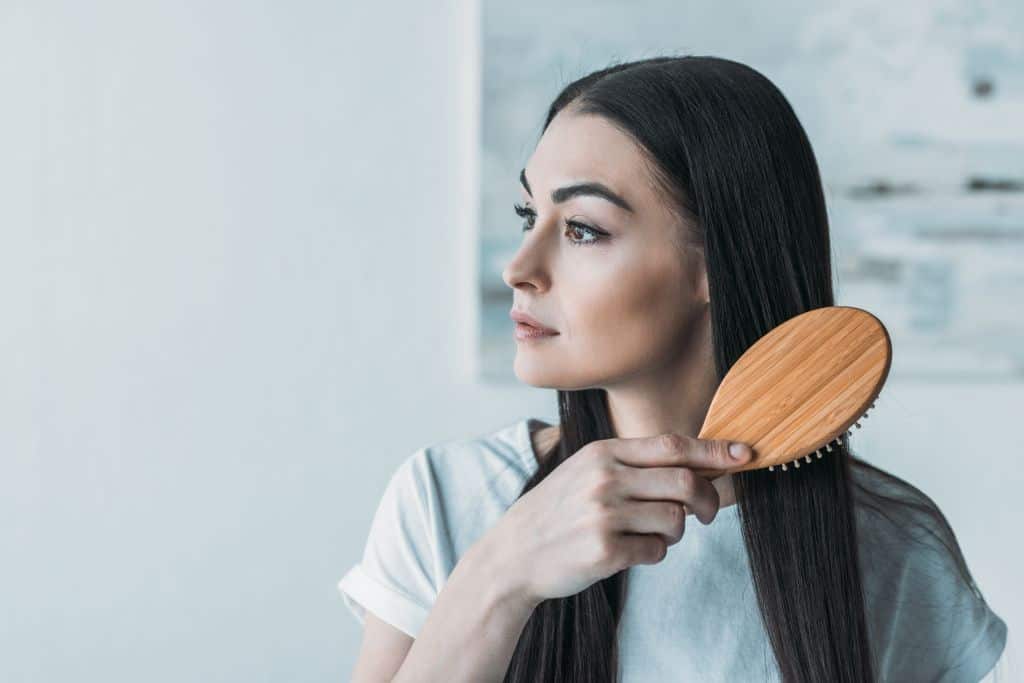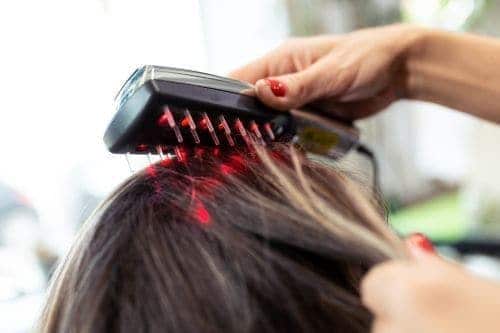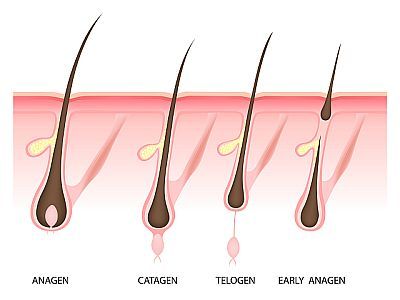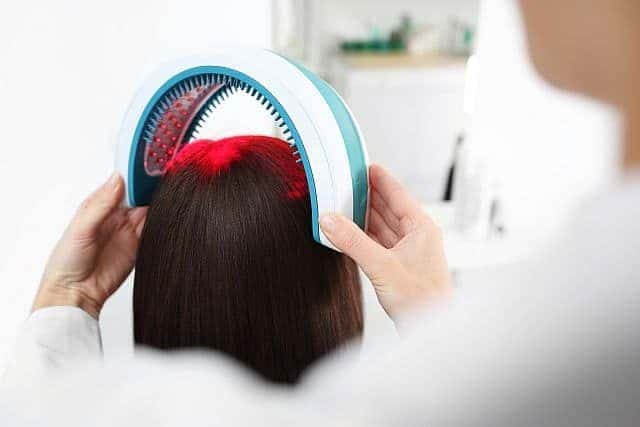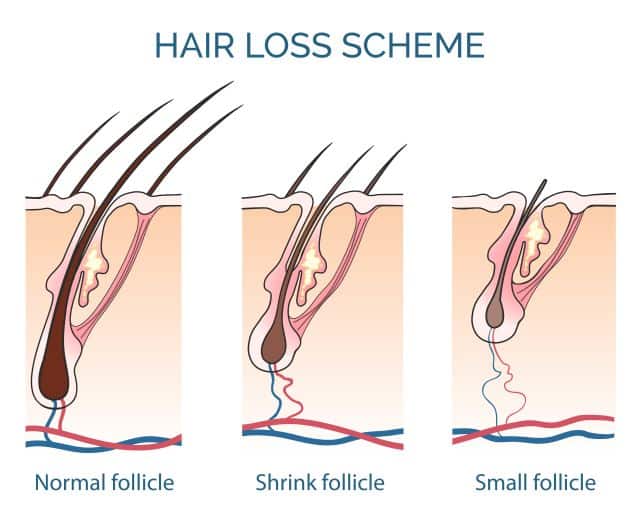Written by Gaga, Medically reviewed by Dr. Rosmy Barrios
Hair oils are multi-tasking hair care products that grow in popularity. In addition to working wonders for your hair, these oils are free of chemicals commonly found in most commercial hair care products.
The use of oils for hair care is widespread in Ayurvedic medicine. One of the most popular uses of hair oils is to nourish the scalp and hair to promote faster hair growth.
Although hair oils come from nature, you need to stick to the manufacturer’s directions to reduce the chances of skin irritations and allergic reactions.
Essential oils require additional precautions. Since these oils come in high concentrations, they need dilution with carrier oils in the correct proportion. Undiluted essential oils can cause skin burns.
Below, you can find a list of oils that are often used topically for promoting hair growth, available data about their effectiveness, and suggested use for each oil.
1. Rosemary Oil
Rosemary essential oil is a product of the Rosmarinus officinalis leaves distillation. The plant is native to the Mediterranean. Rosemary is a popular cooking ingredient due to its aromatic flavor. Inhaling the aroma of rosemary oil is believed to help concentration.
Uses for scalp and hair: Rosemary oil may help maintain the scalp in good condition because of its antimicrobial, anti-inflammatory, and antioxidant properties. It cleanses the scalp, relieves dandruff, and boosts blood circulation. By improving blood circulation in the scalp area, rosemary oil can increase blood supply to the follicles. With more blood comes more oxygen and nutrients, which may encourage hair growth.
A 2015 study showed that rosemary oil has a positive effect on hair growth without causing unwanted effects.
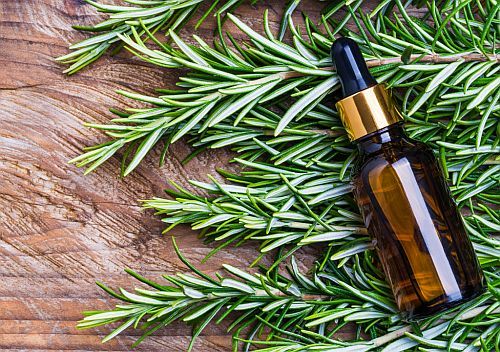
How to apply rosemary oil to the scalp?
- Dilute rosemary oil by mixing it with carrier oils such as coconut, castor, or almond oil. Massage the mixture into the scalp and let it stay there for at least 15 minutes before washing your hair with shampoo. For continued improvement, you need to repeat this treatment regularly.
- Add a few drops of rosemary oil to your shampoo or conditioner.
- Purchase hair products that contain rosemary oil.
2. Is Tea Tree Oil Good for Hair Growth?
Steam distillation of fresh tea tree leaves makes tea tree essential oil. Due to its extraordinary antimicrobial properties, this oil is known as a traditional herbal medicine for skin problems.
Powerful cleansing and antimicrobial properties make tea tree oil a potent natural remedy for scalp problems. Its topical application helps clean the hair follicles and boosts circulation to the root area, which may result in better hair growth.
According to one study, some hair loss products work better when combined with tea tree oil.
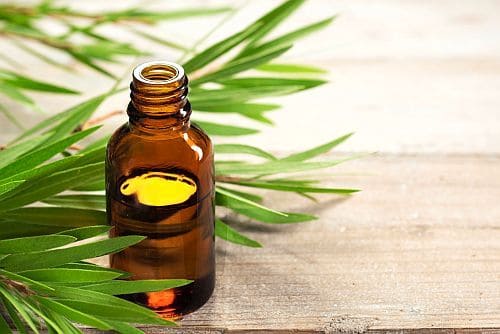
How to apply tea tree oil to the scalp:
- To massage the scalp, it is necessary to dilute tea tree oil with some carrier oil such as coconut, almond, or sesame oil. Leave the mixture to work for 15 minutes before shampooing your hair.
- Tea tree oil is usable for hot oil treatments. You can also mix a few drops of oil with shampoo when washing your hair. It leaves a tingling sensation on the skin. It is crucial to use tea tree oil only for external use because it can be poisonous if you swallow it.
3. Peppermint Oil
The leaves of the peppermint plant are the source of peppermint essential oil. This plant contains menthol, an ingredient that has anesthetic and cooling effects. Peppermint essential oil has been around for centuries due to its soothing benefits to the skin.
Clarifying and antiseptic properties of peppermint essential oil can benefit your scalp. The topical application of the diluted peppermint oil increases circulation in the scalp area, contributing to the optimal functioning of the hair follicles.
According to an animal study on mice, peppermint oil has been more effective in stimulating hair growth than other tested substances.
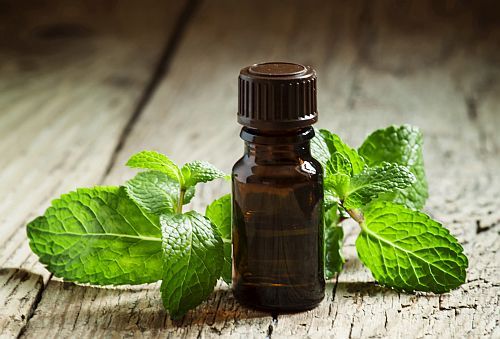
How to use peppermint oil for hair:
- Mix a few drops of peppermint oil with a carrier oil of your choice. Massage the mixture into the scalp and leave it to work for 20-30 minutes before washing your hair with shampoo.
- You can also mix two drops of peppermint oil with your shampoo before showering.
- The most convenient way to enjoy the benefits of peppermint oil is to buy a shampoo that contains menthol.
4. Black Seed Oil
Black seed oil comes from seeds of black cumin (Nigella Sativa), a plant that is native to southwest Asia.
Ancient Ethiopians used the black seed as a remedy for nearly everything due to its numerous health benefits.
The potential hair growth-boosting potential of this oil comes from high concentrations of thymoquinone. The black seed oil also contains omega-3 and omega-6 fatty acids known to improve circulation in the scalp area.
A small study from 2013 done in Italy confirmed the positive effect of the topical use of black seed oil on hair growth.
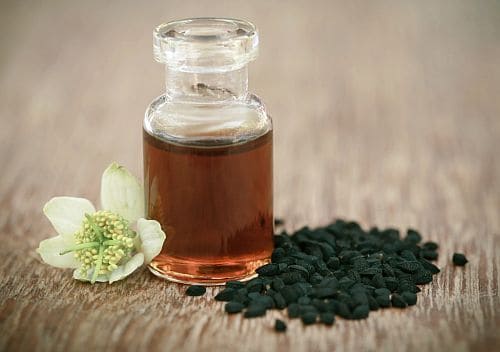
How to use black seed oil on your hair:
- The best way to take advantage of the black seed oil is to add a few drops of oil to hair care products to your regular hair care products, such as shampoos, conditioners, hair masks, and lotions.
- When using it as a pre-shampoo treatment, mix one measure of black seed oil with two equal measures of another mild oil and then massage it into the scalp. Leave the mixture to work for at least 30 minutes. Do this treatment before each hair washes, and when possible, leave it in overnight and wash your hair in the morning.
5. Lavender Oil
Production of lavender essential oil requires distilling the flowers of the lavender plant. This oil has been around since ancient times because of its soothing and relaxing properties.
Lavender oil is a powerful antioxidant and has antimicrobial and soothing qualities. A Korean study on mice shows that topical application of lavender oil may have a hair growth-promoting effect.
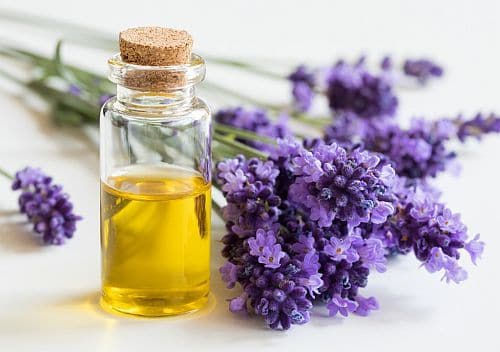
How to use lavender oil to nourish the scalp:
- Dilute the lavender essential oil with coconut or jojoba oil and use it to massage the scalp and as a pre-shampoo treatment.
- Add a few drops of this oil to your weekly deep conditioning treatment.
- Use hair products that contain lavender oil. In addition to other benefits, you will enjoy a relaxing aroma.
Note: Lavender essential oil is poisonous and is meant only for external use.
6. Does Amla Oil Stimulate Hair Growth
Amla oil is an ingredient of amla plant fruits, also known as Indian gooseberry, a native to India. Dried fruit is a source of powder that is an ingredient in many beauty products.
Amla oil contains antioxidants and phytonutrients, which stimulate circulation in the scalp area when the oil is applied there. Amla oil strengthens follicles and may help with dandruff.
A few small studies have shown encouraging results about the potential of amla oil to encourage hair growth.
A study on rabbits conducted in Pakistan showed that amla oil can promote hair growth in rabbits.
A ninety-day study concludes that amla oil-containing serum:
- helps reduces hair shedding, and
- has a positive effect on hair density
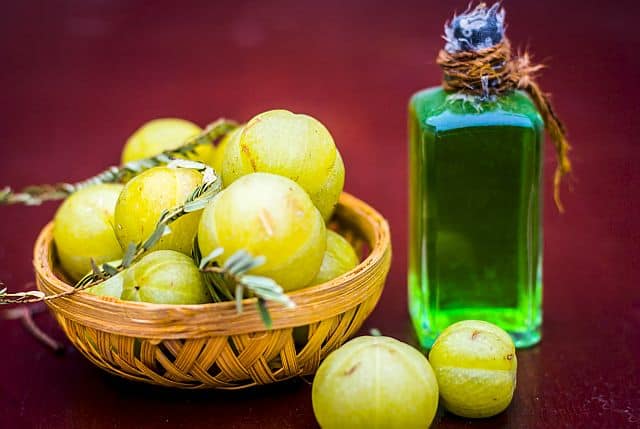
How to use amla oil for hair:
- Amla oil can be applied as a conditioning pre-shampoo treatment. Massage the oil into the scalp and leave it on for 20-30 minutes before washing it out with shampoo.
- You can make an effective hair mask by adding a few drops of rosemary oil or tea tree oil to amla oil. Apply to the scalp and hair, wrap your hair in a warm towel, and leave the mixture to work for about 15 minutes. Use this mask once a week.
7. Emu Oil
Fatty deposits of Emu birds, native to Australia, contain Emu oil. In the past, this oil had a reputation for relieving pain and calming skin injuries.
Emu oil has a high content of fatty acids and possesses antioxidant and anti-inflammatory properties. It penetrates the skin very quickly and can help the skin absorb other beneficial ingredients.
An animal study shows that adding emu oil to a popular hair product could make it more effective.
A small study on humans confirmed the potential stimulating effect of emu oil on faster hair growth when applied once a day to the scalp.
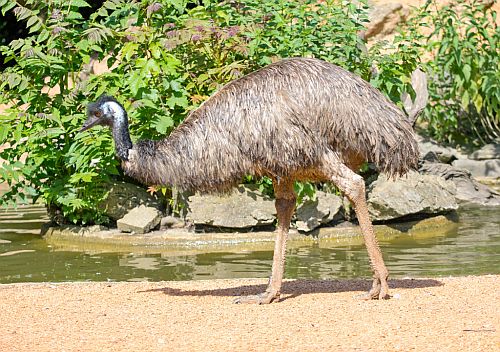
How to apply emu oil to the scalp:
- Before each shampooing, apply and massage the emu oil into your scalp and leave it for 20-30 minutes.
- Apply the oil to the scalp and leave it overnight. Wash your hair in the morning.
- You can apply a small amount of oil a couple of times a day to the roots.
8. Can Grapeseed Oil Reduce Hair Loss?
Grapeseed oil is a by-product of the wine-making industry. In addition to culinary purposes, this oil is becoming increasingly popular in skin and hair care.
Grapeseed oil is rich in antioxidants and omega-6 fatty acids. It contains linoleic acid, which may have a stimulating effect on hair growth. Grapeseed oil has antimicrobial, hydrating, and anti-frizz properties. Due to its ability to dissolve dead skin cells, some people use it to get rid of flakes.
A Japanese study on mice showed that the flavonoid procyanidin, found in grape seeds, has promising potential to speed hair growth.
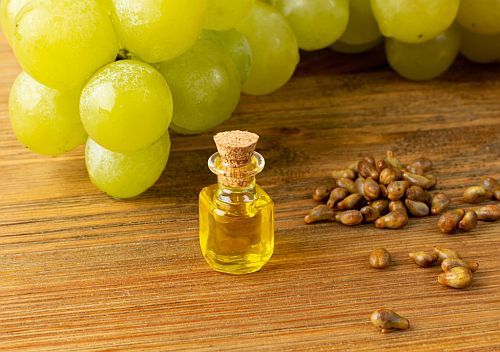
How to use grapeseed oil on the scalp:
- As a pre-shampoo treatment – massage the oil into your scalp for about five minutes, and then shampoo. The oil is easily absorbable, so you can use it for massaging the scalp without the risk of build-up.
- Apply a few drops occasionally and massage them into the scalp even when you do not plan to wash your hair.
- For a hot oil treatment, add a few drops of lavender or rosemary essential oil. Leave on for about 20 minutes, then shampoo.
9. Cedarwood Oil
Cedarwood essential oil comes from the cedar tree. Due to its pleasant aroma, this oil is famous as a body-relaxing and mind-calming tonic.
Cedarwood oil has antimicrobial properties that help to keep the scalp in good condition. This oil contains a high concentration of sesquiterpene, a substance that stimulates blood circulation. The topical application of cedarwood oil on the scalp increases blood circulation. The result is a better oxygen supply to the hair follicles.
One 1998 study showed that the mixture of cedarwood, thyme, rosemary, and lavender essential oils may have a positive effect on hair growth.
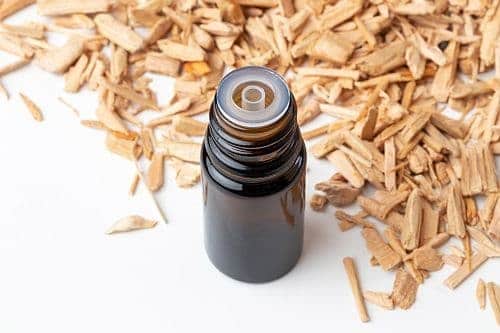
How to use cedarwood oil on hair-thinning areas:
- Dilute cedarwood essential oil with a carrier oil of your choice and massage the mixture into the scalp. That will improve circulation in the scalp and remove deposits of dead skin cells.
- Add a few drops of oil to warm coconut or argan oil. Apply generously to your hair and scalp. Wrap your head in a warm towel and leave the mixture on for about 30 minutes before shampooing.
- Add a little oil to your shampoo and leave the shampoo in your hair for a few minutes to allow the oil to work before rinsing it off with a shampoo.
10. Does Bhringraj Oil Help with Hair Growth?
Bhringraj oil is an extract of the False Daisy plant, also known as Eclipta Alba. The plant leaves are mixed with some carrier oils, such as coconut oil, and boiled.
There are several formulations of Bhringraj oil, and they all contain Eclipta Alba plant extract and carrier oil.
The oil is rich in triterpenoids and flavonoids. These have antimicrobial, anti-inflammatory, and antioxidant properties.
Bhringraj oil is used in Ayurvedic medicine to revitalize the scalp and promote hair growth. Its antimicrobial properties help relieve scalp problems. The nutrients in the oil make up for the mineral deficiency that may cause hair loss.
A 2009 study shows that the extract of Eclipta Alba can have the potential to promote hair growth.
An animal study from 2008 showed a superior impact of the Eclipta Alba plant extract on the hair compared to a well-known hair loss product.
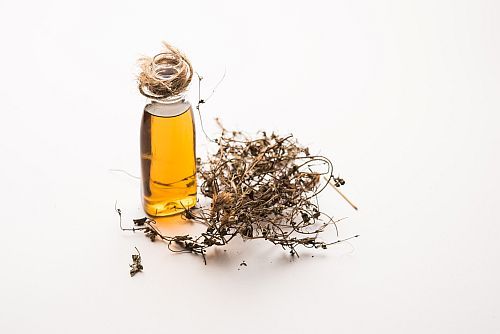
How to use Bhringraj oil to encourage hair growth:
1. To boost its efficiency, warm up the oil before application. Massage the oil into the scalp for 15 minutes and leave for another 15 minutes before washing your hair. Repeat twice a week.
11. Can Coconut Oil Promote Hair Growth?
Coconut oil is obtained by pressing the meat of a coconut and is rich in beneficial ingredients.
The antimicrobial properties of coconut oil help to create a healthy environment to encourage hair growth.
Coconut oil is rich in lauric acid that can penetrate deep into the hair shaft to help retain moisture and prevent protein loss. Lauric acid can relieve inflammation, keeping hair follicles in good condition. Coconut oil also strengthens the cuticle, which helps reduce hair breakage.
A 2003 study showed that coconut oil is more efficient in penetrating the hair shaft and protecting hair from protein loss and damage compared to mineral oil and sunflower oil.
A study from 2014 showed that coconut oil mixed with the plant Nigella sativa may have a stimulating effect on hair growth.
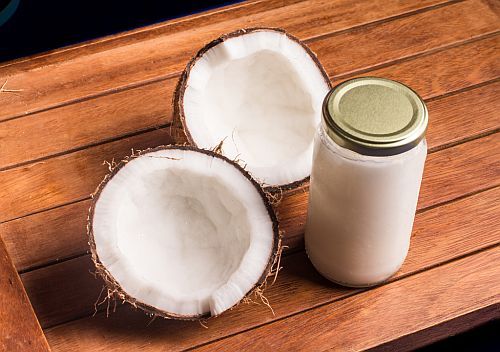
How to use coconut oil to create the appearance of denser hair:
- Leaving coconut oil overnight will give you the “maximum benefits. Warm the oil and apply it to dry hair, and massage it on the scalp. Wrap your hair in the shower cap and leave the treatment overnight.
- Massage one teaspoon of coconut oil into the scalp with gentle pressure for 10 minutes, 3 or 4 times per week.
12. Does Castor Oil Help with Hair Growth?
Castor oil is cold-pressed from roasted castor beans. It has a long history and a wide area of application. This oil is rich in nourishing fatty acids, vitamin E, and minerals. The most important among fatty acids is Ricinoleic acid, which is known for its anti-inflammatory properties.
Castor oil has conditioning effects on the scalp and hair. Although there is insufficient scientific data about its effectiveness, this oil is widely popular. Many people believe that it can help with hair growth and enhance the overall appearance of their hair.
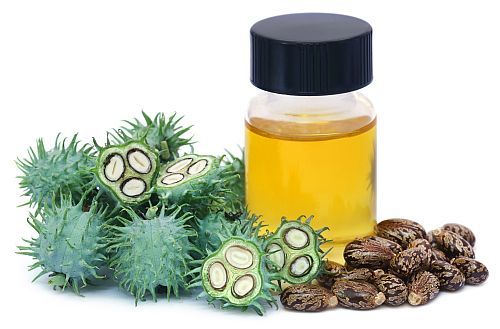
How to use castor oil:
1. The best way to use castor oil for hair growth is to massage it into the scalp before shampooing. Massage the oil into the scalp for 10-15 minutes. Then cover your hair with a shower cap and leave the oil on for about two hours. Wash your hair with shampoo and use conditioner. For maximum effect, leave the oil overnight and wash the hair in the morning.
How to Buy a Quality Hair Oil
Make sure you check the label and read the ingredient list. Look for pure oils without synthetic additives. When it comes to carrier oils, look for organic cold-pressed, unrefined oil. The cold pressing method preserves the maximum nutritional content.
When purchasing an essential oil, look for a product of steam distillation. This information is usually available on the packaging. Steam distillation is the best method to produce organic and pure essential oils.

